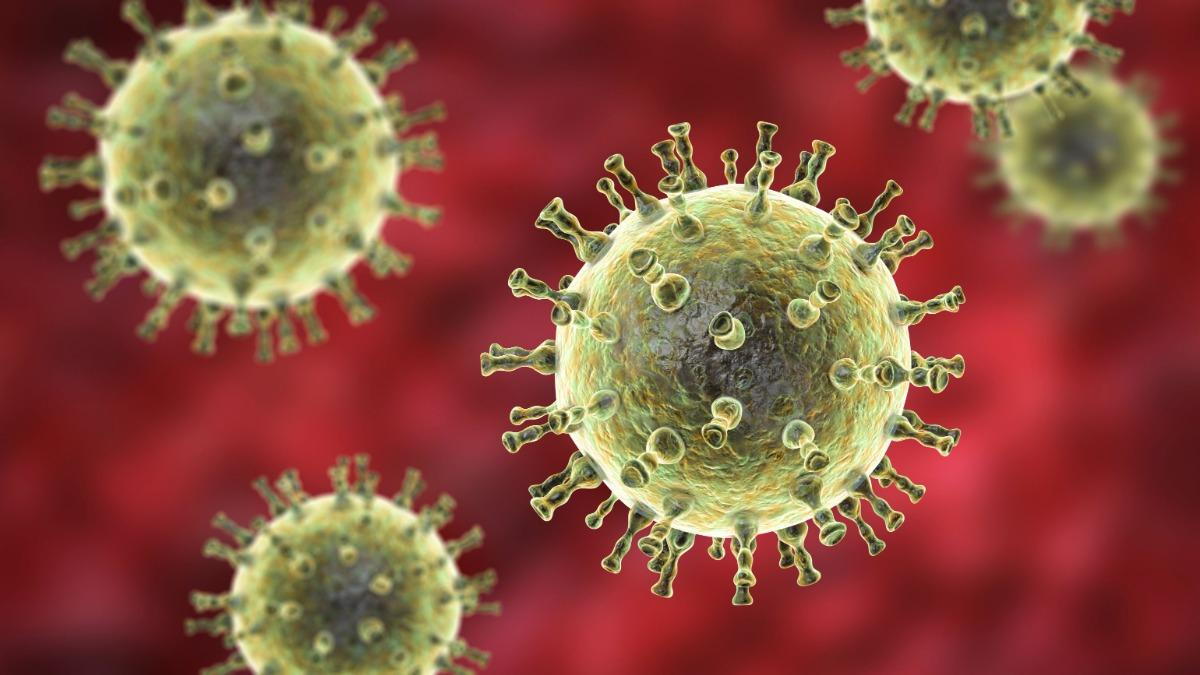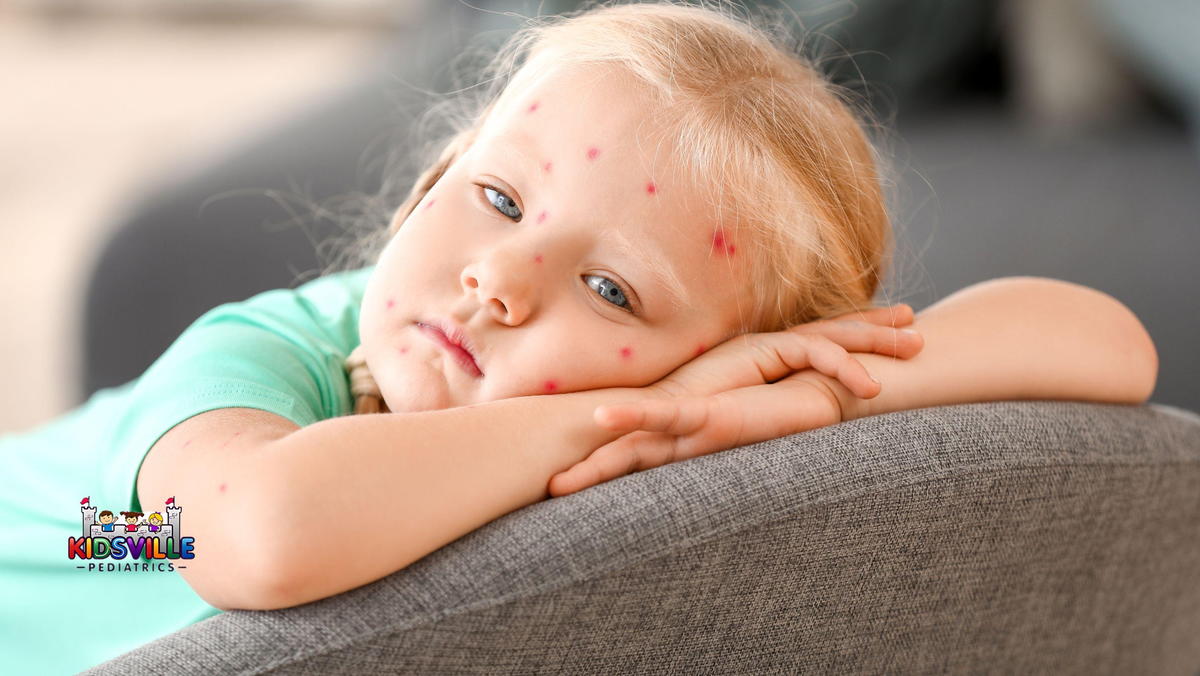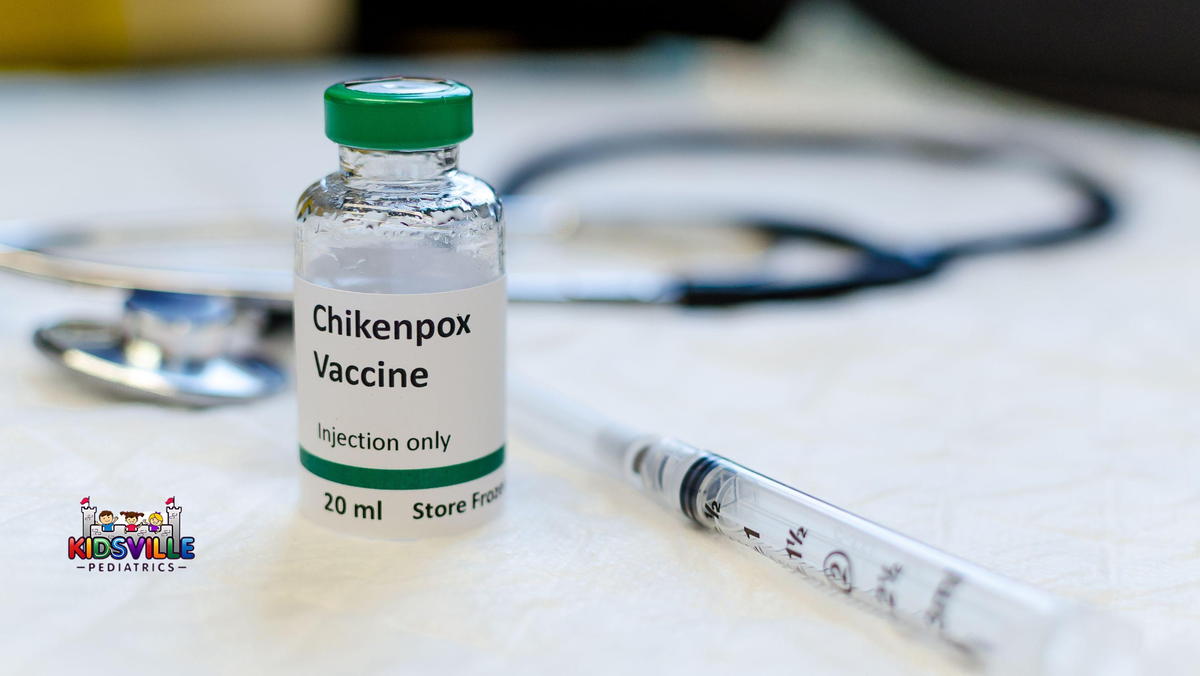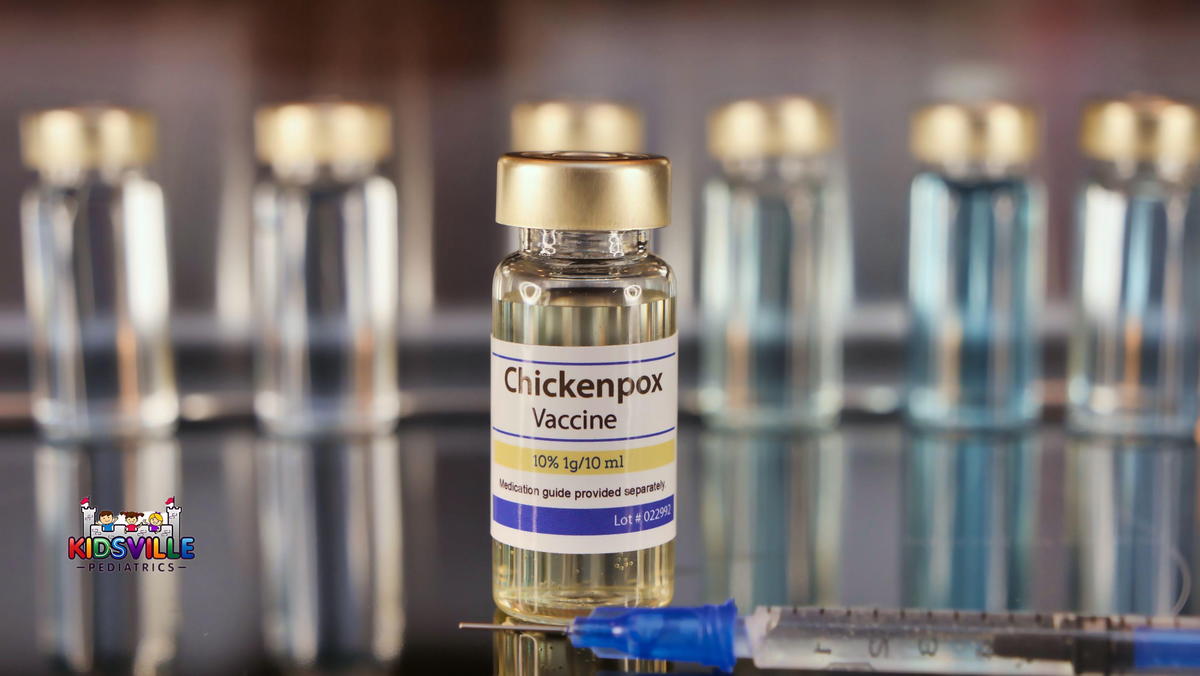
Chickenpox, caused by the varicella-zoster virus, is a highly contagious disease that primarily affects children. Characterized by an itchy red rash, fever, and fatigue, chickenpox can spread rapidly through schools and daycares, making it a common childhood illness. While most cases are mild, chickenpox can lead to complications, especially in infants, teenagers, adults, and individuals with weakened immune systems. Fortunately, there are effective measures to prevent chickenpox, with vaccination being the most crucial tool. A Southlake pediatrician can guide you through the vaccination process and other preventive strategies to keep your child safe.
In this comprehensive guide, we will explore how vaccination, along with other preventative strategies, plays a pivotal role in protecting children from chickenpox, and how a pediatrician can provide expert care to keep your family safe.
Understanding Chickenpox

Before diving into prevention, it’s important to understand the basics of chickenpox. Chickenpox symptoms typically start — fever, fatigue, and loss of appetite—before the telltale rash appears. The rash usually begins as red spots that turn into fluid-filled blisters, which eventually burst and scab over. The entire illness usually lasts between 5 to 10 days, but the contagious period begins 1 to 2 days before the rash appears and continues until all blisters have scabbed over.
Chickenpox is more than just an inconvenience; it can lead to serious complications in certain populations, including infants, teenagers, adults, pregnant women, and individuals with weakened immune systems. These complications can include bacterial infections of the skin, pneumonia, or even encephalitis, an inflammation of the brain. For these reasons, it’s essential to understand how to protect your child from chickenpox, and your pediatrician Southlake TX expert is there to help.
The Importance of Vaccination in Preventing Chickenpox

The introduction of the chickenpox vaccine in the mid-1990s was a game-changer in preventing the spread of this virus. The varicella vaccine is now routinely administered as part of childhood immunizations and has significantly reduced the number of chickenpox cases and related complications. According to data from the Centers for Disease Control and Prevention (CDC), chickenpox cases have dropped by more than 90% since the vaccine became widely available.
A pediatrician in Southlake will emphasize that the vaccine is the most effective way to prevent chickenpox and protect children from potential complications. Vaccination not only safeguards your child but also reduces the risk of the disease spreading within your community.
How the Vaccine Works

The chickenpox vaccine contains a live, weakened form of the varicella-zoster virus, which stimulates the immune system to develop antibodies against the disease. This ensures that if the vaccinated individual is exposed to the virus in the future, their body is well-equipped to fight off the infection, either preventing illness altogether or drastically reducing its severity.
Most children receive two doses of the varicella vaccine:
Initial dose is given at 12-15 months.
The second dose is provided at 4-6 years of age.
If your child misses these recommended ages, don’t worry! A Southlake pediatrician can administer catch-up vaccinations, which are crucial for providing protection at any age.
Efficacy and Safety of the Vaccine

The chickenpox vaccine is highly effective, with studies showing that two doses of the vaccine are about 90% effective at preventing chickenpox. Even in cases where a vaccinated child contracts the disease, the chickenpox symptoms are usually much milder, with fewer blisters and little to no fever.
As with all vaccines, side effects can occur, but they are generally mild and temporary. Common side effects include soreness at the injection site, mild fever, or a small rash. Severe side effects are uncommon, and the advantages of vaccination greatly surpass any potential risks. A Southlake pediatric clinic can discuss any concerns you have about the vaccine and ensure that your child is on track with their immunizations.
Vaccination Beyond Childhood
While most children receive the chickenpox vaccine as part of their regular immunizations, there are additional groups who may require the vaccine:
Unvaccinated Teens and Adults: Adolescents and adults who have never had chickenpox or the vaccine are at risk of more severe complications if they contract the virus. Catch-up vaccinations are strongly recommended by every pediatrician to ensure that these individuals are protected.
Pregnant Women: Chickenpox can cause serious health problems for both the mother and the unborn baby if contracted during pregnancy. Pregnant women who have not had chickenpox or the vaccine should speak to their doctor about receiving the vaccine before becoming pregnant to protect both their health and the health of their future child.
People with Weakened Immune Systems: Individuals with compromised immune systems—such as those undergoing chemotherapy or living with chronic illnesses—should discuss vaccination with their physician. Although some may require additional precautions, the vaccine is generally recommended when appropriate.
Herd Immunity and Community Protection
One of the greatest advantages of widespread vaccination is the concept of herd immunity. When a large percentage of the population is vaccinated against a contagious disease like chickenpox, the virus has fewer opportunities to spread, thus protecting those who cannot be vaccinated, such as infants, pregnant women, or individuals with certain health conditions.
By vaccinating your child, you not only protect them from chickenpox but also contribute to the overall safety of your community. A Southlake pediatrician will highlight the importance of herd immunity, especially in areas where children and adults are in close contact, such as schools and daycares.
Additional Strategies for Preventing Chickenpox

While vaccination is the most effective way to prevent chickenpox, a Southlake pediatrics clinic may also recommend additional steps parents can take to minimize their child’s risk of exposure and infection.
Teach Good Hygiene Habits Encouraging good hygiene is essential in preventing the spread of infectious diseases, including chickenpox. Your pediatricians will emphasize the importance of teaching children to:
Wash hands frequently with soap and water.
Encourage them to avoid touching their face, particularly around the eyes, nose, and mouth.
Cover their mouth and nose with a tissue or their elbow when sneezing or coughing.
Avoid sharing personal items like towels, utensils, or water bottles with others.
Good hygiene habits not only help prevent chickenpox but also protect against colds, the flu, and other contagious illnesses that circulate, especially during school years.
Isolate Infected Individuals If your child or another family member contracts chickenpox, it’s crucial to isolate the infected person from others to prevent the virus from spreading. Keep the infected individual at home until all blisters have scabbed over, which usually takes about a week. Your Southlake pediatrician can provide guidance on how long isolation should last based on your child’s condition.
Limiting visitors, especially those who are unvaccinated or at high risk for complications, such as pregnant women or individuals with weakened immune systems, is also important to prevent further spread of the disease.
Boost Your Child’s Immune System A healthy immune system is the body’s best defense against infections like chickenpox. While vaccination provides targeted protection, you can support your child’s overall immune health by:
Providing a balanced diet rich in fruits, vegetables, and whole grains.
Encouraging regular physical activity.
Ensuring your child gets plenty of sleep each night.
Reducing stress and promoting relaxation and emotional well-being.
Your Southlake pediatrician can offer advice on how to keep your child’s immune system strong to help them fight off infections more effectively.
Stay Informed About School Policies Schools and daycares can be hotspots for contagious diseases, including chickenpox. Make sure your child’s school has clear policies for managing infectious diseases and follows guidelines from health authorities regarding vaccination and exclusion of sick students. Stay in communication with the school if there is a chickenpox outbreak, and follow their recommendations for keeping your child safe.
Consult your Southlake pediatrician for additional advice if your child’s school reports an outbreak, as extra precautions may be necessary.
What to Do If Your Child Contracts Chickenpox

Even with the best prevention measures, it’s still possible for a child to contract chickenpox, especially if they have not been vaccinated or are exposed before the vaccine takes full effect. If your child does develop chickenpox, here are some steps you can take to help them recover and minimize complications:
Manage Symptoms: Chickenpox can cause itching, fever, and discomfort. You can use over-the-counter medications like acetaminophen (Tylenol) to reduce fever and discomfort. Avoid giving aspirin to children with chickenpox, as it is associated with a serious condition called Reye’s syndrome.
Soothe Itching: To relieve the itching caused by chickenpox blisters, consider giving your child cool baths with baking soda or colloidal oatmeal. Calamine lotion and antihistamines can also help soothe irritated skin.
Keep Blisters Clean: Encourage your child not to scratch the blisters, as this can lead to infections or scarring. Trim their nails and have them wear mittens or gloves if necessary to reduce scratching during sleep.
Stay Hydrated: Chickenpox can lead to dehydration, especially if your child has a fever. Offer plenty of fluids, such as water, clear soups, and electrolyte-rich drinks, to keep them hydrated.
Most cases of chickenpox are mild, but contact your pediatrician in Southlake if your child develops any of the following:
Difficulty breathing or persistent coughing.
High fever that lasts more than four days.
Severe headache, confusion, or drowsiness.
Blisters that become red, swollen, or filled with pus (a sign of infection).
Persistent vomiting or inability to drink fluids.
Pediatrician Near Me: When to Call Your Southlake Pediatrician
While most cases of chickenpox are mild, it’s important to know when to seek medical advice. If you notice any concerning chickenpox symptoms, such as those mentioned above, call your Southlake pediatrician immediately. They can provide expert advice and recommend the appropriate course of action to ensure your child receives the care they need.
Preventing chickenpox in children is critical for their health and well-being. Vaccination remains the most effective way to protect your child from this contagious illness, and your Southlake pediatrician is a valuable resource for guidance on this and other preventive measures. By working together with your child’s doctor, you can ensure your child stays healthy and the community is protected from outbreaks.
Click to Schedule An Appointment. Or visit/call our clinics: Kidsville Pediatrics Mansfield TX: 682-341-3910; 1759 Broad Park Circle S, Suite 201 & 205, Mansfield, TX Kidsville Pediatrics Southlake: 682-345-8010; 2813 W. Southlake Blvd Suite 100 Southlake, TX Kidsville Pediatrics McKinney: 469-885-9400; 5881 Virginia Pkwy. Suite 300 Mckinney, TX |
